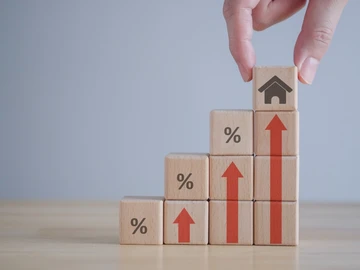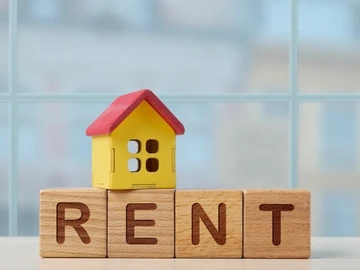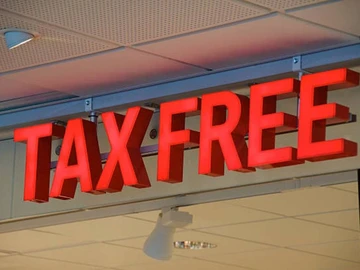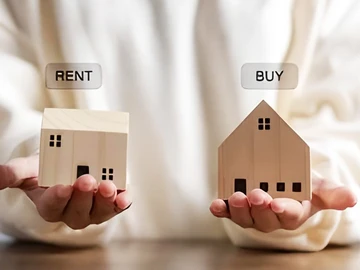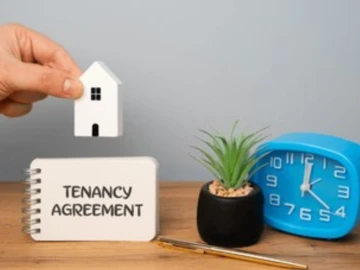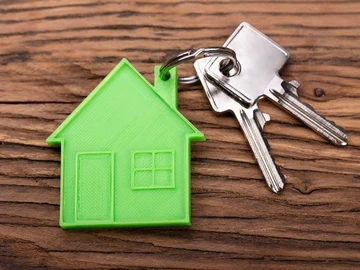In Zimbabwe's evolving real estate landscape, determining whether to rent or buy a home in 2025 requires a thorough analysis of current market data, economic indicators, and personal financial circumstances. This article delves into the latest statistics to provide a data-driven perspective on this critical decision.
Renting a Home: Advantages and Disadvantages
Pros of Renting
- Lower Initial Costs: Renting typically requires a security deposit and the first month's rent, making it more accessible for individuals without substantial savings.
- Flexibility: Renters can relocate with relative ease, a significant advantage in an unpredictable economic environment.
- No Maintenance Responsibilities: Landlords are generally responsible for property upkeep, reducing unforeseen expenses for tenants.
Cons of Renting
- No Equity Accumulation: Monthly rent payments do not contribute to personal asset growth.
- Potential Rent Increases: Landlords may raise rents to keep pace with inflation or market demand, impacting long-term affordability.
- Limited Control Over Property: Tenants often face restrictions on modifications or personalization of their living spaces.
Buying a Home: Advantages and Disadvantages
Pros of Buying
- Equity Building: Homeownership allows individuals to build equity over time, potentially leading to wealth accumulation.
- Stability: Owning a home provides a sense of permanence and protection against sudden rent hikes or eviction.
- Freedom to Renovate: Homeowners can modify their properties to suit personal preferences without seeking permission.
Cons of Buying
- High Initial Costs: Purchasing property requires a significant down payment, closing costs, and other fees, which can be a barrier for many.
- Maintenance Responsibilities: Homeowners are responsible for all repairs and upkeep, necessitating additional time and financial resources.
- Market Risk: Property values can fluctuate, potentially leading to financial loss if the market declines.
The Financial Break-Even Point: When Does Buying Become Cheaper Than Renting?
The break-even point is the duration after which owning a home becomes more cost-effective than renting. This period varies based on several factors:
- Property Prices: In Zimbabwe, residential property prices vary significantly. For instance, properties in high-density suburbs range from USD 17,000 to USD 40,000, while those in medium-density areas cost between USD 50,000 and USD 120,000.
- Mortgage Interest Rates: Zimbabwe has experienced high lending rates, with bank lending rates averaging 25.26% from 2011 to 2025, peaking at 99.37% in October 2022. As of February 2025, the central bank's benchmark interest rate was 35%.
- Rental Costs: Rental prices vary by location and property type. For example, renting a property in a medium-density suburb may cost approximately USD 500 per month.
Break-Even Analysis Example
Assuming a property purchase price of USD 80,000 with a 20% down payment (USD 16,000) and a 15-year mortgage at a 35% interest rate, the monthly mortgage payment would be approximately USD 2,333. Comparatively, renting a similar property at USD 500 per month would result in total payments of USD 90,000 over 15 years. In this scenario, renting remains more cost-effective over the 15-year period due to the high mortgage interest rates.
The Impact of Inflation and Interest Rates on Housing Affordability
Inflation
Zimbabwe has faced significant inflationary pressures, with the inflation rate standing at 175.8% as of June 2023. High inflation erodes purchasing power, increases construction costs, and leads to higher property prices and rents.
Interest Rates
Elevated interest rates directly impact mortgage affordability. With bank lending rates reaching 99.37% in October 2022 and averaging 25.26% over the past decade, borrowing costs are substantial.
As of February 2025, the central bank's benchmark interest rate was maintained at 35%. These high rates increase monthly mortgage payments, making homeownership less accessible for many.
Conclusion: Should You Rent or Buy in 2025?
Given the current economic indicators:
- Renting may be more advantageous for individuals seeking lower monthly housing costs and flexibility, especially considering high mortgage interest rates.
- Buying could be beneficial for those prioritizing long-term investment and stability, provided they can manage the substantial initial costs and potential market risks.
Ultimately, the decision to rent or buy in 2025 depends on individual financial situations, risk tolerance, and long-term goals. Prospective homeowners should carefully assess their ability to withstand high borrowing costs and potential property value fluctuations. Conversely, renters should consider the possibility of rising rents and lack of equity accumulation.
For comprehensive property listings and expert insights into Zimbabwe's real estate market, visit Property.co.zw.
 Continue with Facebook
Continue with Facebook
 Continue with Email
Continue with Email





